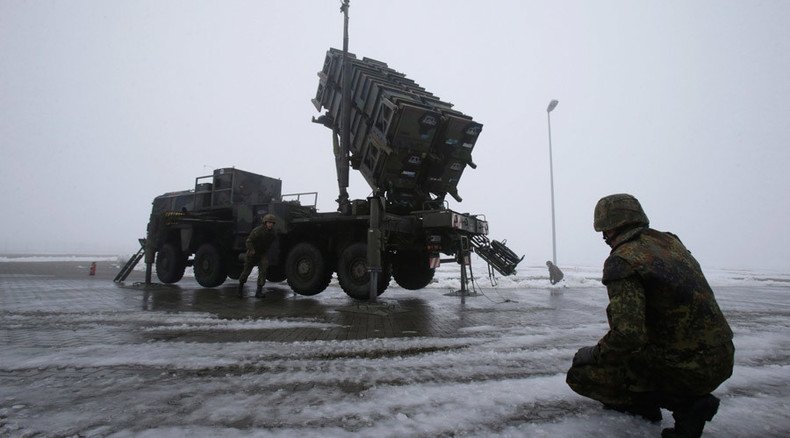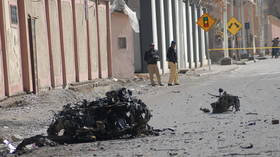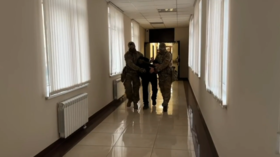Germany to withdraw its anti-air missiles from Turkey

The German Defense Ministry announced it is to end its border protection mission in Turkey and remove its missile-defense batteries from the country. The decision was taken due to “low ballistic missile threat” as well as the “high costs of the mission.”
The defense ministry confirmed that the contingent of the Bundeswehr, the German army, taking part in a NATO operation called Active Fence Turkey (AFTUR), along with its Patriot missile systems, would be withdrawn from the Turkish border by the end of January 2016, after its mandate ends.
In a statement published on the German Defense Ministry’s website, the ministry confirms it will not extend the mandate to protect the southern Turkish border beyond the two and a half years of service it has already rendered.
READ MORE: Germany prepares for cyberwarfare offensive – reports
The German force currently stationed on Turkey’s border with Syria consists of 250 soldiers maintaining two “Patriot” missile-defense systems, including missile specialists, combat support personnel, and NBC protection forces.
The NATO force is deployed near the city of Kahramanmaras (southern Turkey), a hundred kilometers from the Syrian border. Some 400 Germans have been serving there since January 2013.
The Active Fence Turkey operation was launched in December 2012 after Turkey requested assistance from NATO to counter potential missile strikes from Syria, which is mired in a civil war. Apart from Germany, the US, the Netherlands, and since 2015, Spain, have taken part in the mission.
READ MORE: German missile battery receives orders from… unknown ‘hackers’ – report
The latest German Defense Ministry decision is based on a recent evaluation of the border situation conducted by NATO specialists in June 2015, which defined the potential missile threat to Turkish territory from Syria as “very low,” the German ministry press-release says.
According to the German news agency DPA, the closure of the German mission was prompted by its high costs, as it required a lot of material support, as well as “too many of the Bundeswehr’s highly-trained missile specialists.”
DPA also emphasizes that the decision had been taken before the renewed outbreak of violence between Turkey and the Kurdish Workers Party (PKK), concluding it had not been a political reaction to Turkey’s recent attacks on Kurds.
READ MORE: Germany wants to send more troops to help Kurds fight ISIS
The press-release also praises the success of the mission, citing German Defense Minister, Ursula von der Leyen:
“Together with our NATO partners we have defended the Turkish people against possible missile attacks from Syria,” she said in the statement. “Our Patriot missiles have successfully carried out their mission.”
Ursula von der Leyen also emphasized that Germany would still be actively contributing to stability in the region after the mission, as about 100 German military specialists are remaining to train Kurdish and Iraqi forces in the city of Irbil in northern Iraq. She also pointed out that German battleships are still part of other international missions in the region, such as the United Nations’ Interim Force in Lebanon (UNIFIL) and NATO’s antiterrorist Operation Active Endeavour.
In her statement, the German Defense Minister also drew attention to the danger posed by the Islamic State.
“The nature of the threat in this crisis ridden region has changed. Now it comes from the terrorist organization Islamic State,” she said.












